Where AI Already Beats Your Doctor (And Where It Doesn't)
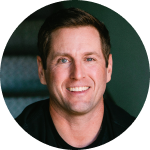
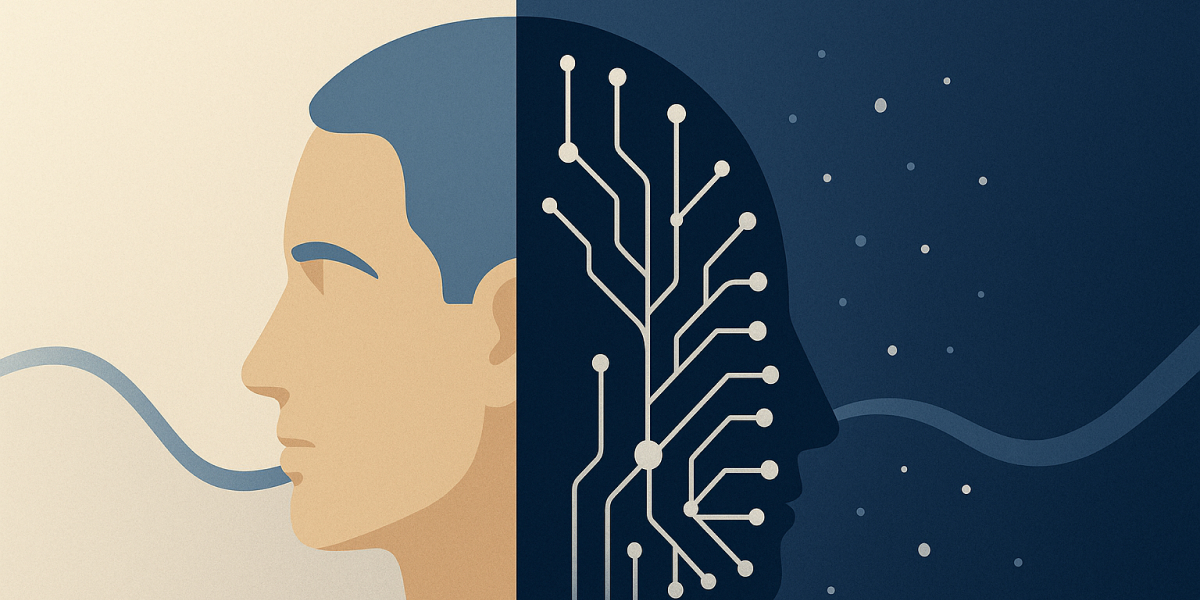
Let's get something out of the way up front. AI is already better than your doctor at certain medical tasks. Not "will be someday" or "might become." Is, Right, Now. Today.
And before you panic about robot overlords (pick your favorite AI based dystopian future movie) taking over healthcare, take a breath. Because the full story is way more interesting than the headline.
Where Human Brains Hit Their Limit
Your doctor is probably brilliant. They probably went to a great medical school. They've seen thousands of patients. They know their stuff.
But here's the problem, the human brain has limited memory and limited processing power.
When you walk into your doctor's office with fatigue, they're thinking through maybe two or three possible causes. Thyroid. Anemia. Depression. Sleep apnea. Maybe vitamin D if they're thorough.
But what if your fatigue is actually the intersection of:
- Your MTHFR and COMT variants slowing methylation
- Elevated homocysteine from inadequate B12 and folate
- Low ferritin (not anemia, just low iron stores)
- Slight hormone imbalance
- Poor sleep quality driven by high cortisol (because you're a slow COMT degrader)
- Overtraining without adequate recovery (your HRV has been tanking for three weeks)
- Subclinical hypothyroidism that's technically "in range" but suboptimal for you
That's not two or three possible causes. That's twelve variables interacting across four body systems. And each one affects the others.
No doctor can hold that in their head while also listening to you, checking your chart, thinking about the next patient, and deciding what to order.
Guess what, AI can.
The Complex Problems Where AI Wins
This is where it gets interesting. AI doesn't just match doctors on simple pattern recognition (though it does that too). It absolutely crushes them on complexity. Here are some examples.
Multi-system health mysteries. You've got brain fog, joint pain, low energy, and mood swings. Is it one thing? Five things? Your doctor has 15 minutes to figure it out. AI can map 50 possible drivers, rank them by likelihood based on your specific data, and suggest a testing sequence to narrow it down.
Pharmacogenomics at scale. You're on eight medications. Your liver metabolizes some of them too fast (CYP2D6 ultrarapid metabolizer) and some too slow (CYP2C19 poor metabolizer). Drug A interacts with Drug C. Drug E is contraindicated with your kidney function. Drug F raises your blood sugar, which worsens your prediabetes. No human can track all of that in real time. AI does it automatically.
Lipid management in context. Your LDL is 140. Your doctor says "statin." But what if you're an ApoE4 carrier (meaning you respond really well to diet), your Lp(a) is low (so your LDL is less dangerous), your CAC score is zero (no plaque yet), and you're already training 10 hours a week? Maybe you don't need the statin. Maybe you need more fiber and a stricter Mediterranean pattern. AI can synthesize all of that. Your doctor is guessing based on the LDL number alone.
Sleep optimization across multiple levers. You're not sleeping well. Is it your training load? Your cortisol genetics? Your blood sugar crashing at 3 AM? Your magnesium status? Your sleep apnea? Your alcohol intake? Your screen time? All of the above? AI pulls your wearable data, your genetics, your labs, your training log, and maps the most likely culprits. Then tracks which interventions actually move the needle for you.
Connecting symptoms to root causes. You have anxiety. Your doctor prescribes an SSRI. But what if your anxiety is actually driven by undiagnosed sleep apnea (low oxygen at night), subclinical hyperthyroidism (elevated free T3), three cups of coffee on a slow caffeine metabolizer genotype (CYP1A2), and chronic overtraining (elevated cortisol, suppressed testosterone)? Or what if you're a fast COMT degrader and your real problem is low dopamine and norepinephrine, not serotonin? Now you're on the wrong drug targeting the wrong neurotransmitter system. You don't improve. You might even get worse. Treating the anxiety without addressing the drivers is like bailing water from a boat without patching the hole.
This is what AI does that humans can't, it holds all the variables, all the interactions, all the context. And it never gets cognitively overloaded.
Now, before you fire your primary care doctor (we still need them!), let me tell you where this gets really interesting.
AI Never Gets Tired of Questions: The Relentless Pursuit of "Why"
Your doctor has 15 minutes with you. Maybe 20 if you're lucky. They've got 30 more patients to see today, prior authorizations to fight with insurance companies, notes to write, emails to answer. They're brilliant, they care, BUT, they're buried and massively out-gunned.
So when you ask, "Why is my cholesterol high?" you might get "genetics" or "diet" or "you need a statin." All true. But not the whole map. Not the whole story.
AI doesn't have 30 patients waiting. It doesn't get frustrated when you ask the fifth follow-up question. It can sit with you and actually map out the why. 24 hours a day, 365 days of the year. And it gets SMARTER every day.
Case A: "I'm on a statin, can I get off safely?"
Your doctor says: "Probably not. Your LDL is high. Stay on it." But that's not the whole story. Here's what an AI-plus-clinician approach actually looks like: we start by mapping WHY your LDL and ApoB are high in the first place. We're not guessing. We're investigating. What's your actual diet pattern? How much viscous fiber are you getting? What's your saturated fat load? What's your training doing to your lipids? High-intensity can temporarily spike LDL. Did anyone check your Lp(a)? That's genetic and can't be changed with lifestyle. What about thyroid function? Alcohol intake? Sleep quality? Do you have a CAC score? That tells you if plaque is actually building.
Once we know what's driving it, we rank the levers by evidence and effect size. Portfolio diet gets you 10-15% LDL reduction in RCTs. We're talking viscous fiber, nuts, soy, plant sterols. Not "might help." Proven to help. Psyllium at 5-10g daily drops LDL across multiple studies. Works standalone or as a statin add-on. The Mediterranean pattern from the PREDIMED trial didn't just improve numbers, it reduced actual heart attacks and strokes. Zone 2 training improves triglycerides and modestly helps other lipids. You're already doing this as an ultra-runner, but most people aren't. Omega-3s crush triglycerides with a clear dose-response, but high-dose supplements raise AFib risk, so we default to food-first unless there's a strong clinical reason for pills. CAC scoring refines the decision. Zero score with modest risk factors? Maybe you skip the statin. Score of 400? You're staying on it.
The result, not a rushed "stay on the statin" visit. A 45-minute investigation into YOUR specific biology, YOUR drivers, YOUR best levers. And you can do it on your schedule without feeling rushed.
Case B: "I feel anxious, do I need a pill?"
Standard visit: "Here's an SSRI. See you in six weeks." But what if the SSRI makes you worse? What if anxiety isn't a serotonin problem at all? Here's the issue, your psychiatrist treats your brain. Your functional medicine doctor treats your gut. Your PCP manages your vitamins. Nobody's connecting the dots. Everyone's working in their lane. AI doesn't stay in lanes.
It screens everything that could be driving anxiety. Medical contributors first: thyroid dysfunction? Subclinical hyperthyroidism can look like anxiety. Anemia? Low iron tanks energy and mood. Sleep apnea? You're getting low oxygen at night. Medication side effects? Check everything you're taking. Alcohol? Even moderate use disrupts sleep and neurotransmitters. Vitamin D deficiency? Massive mental health implications.
Then we dig into biochemical drivers, and this is where it gets interesting. Are you a fast COMT degrader? That means you clear dopamine and norepinephrine too quickly. Impaired methylation? MTHFR, MTR, MTRR variants affect neurotransmitter production. Sluggish detox pathways? Phase 1 and phase 2 enzyme variants matter. These genetics determine which neurotransmitter systems are actually depleted. Add in lifestyle compounders like sleep debt (a massive anxiety amplifier), overtraining without recovery that crushes your nervous system, chronic stress with no outlet.
Now we rank the interventions by YOUR mechanism. CBT isn't just "talk therapy," it's structured techniques that rewire your response to anxiety, and meta-analyses show consistent benefits. Exercise has proven causation (not just correlation) for anxiety and depression reduction across multiple meta-analyses. Mindfulness-based stress reduction matched escitalopram (Lexapro) head-to-head in an RCT. Non-inferiority. The meditation worked as well as the drug. Sleep apnea screening when indicated because there are strong mental health connections and CPAP improves depressive symptoms in OSA patients.
And here's the critical part: targeted neurotransmitter support. If you're a fast COMT degrader with poor methylation and sluggish detox, an SSRI (which boosts serotonin) might make you WORSE. What you actually need is dopamine and norepinephrine support. Maybe low-dose stimulant therapy. Maybe L-tyrosine (the precursor to dopamine). Maybe methylation support so your body can actually produce neurotransmitters.
Again, AI for the win. Or, at the very least, AI powered "health & wellness" YOU so you can guide and coach your care team.
Why No Single Doctor Could Solve Either Case
Here's what these two cases have in common: complexity that crosses specialty boundaries.
Your cardiologist managing your cholesterol doesn't have your genetic data and doesn't think about your training load. Your psychiatrist treating your anxiety doesn't run detox enzyme panels or check your vitamin D. Your functional medicine doctor might look at methylation but doesn't prescribe stimulant medications. Your primary care doctor is trying to coordinate it all but has 15 minutes and 47 other things to do.
So everyone guesses (brutal but true). You try an SSRI for anxiety. Doesn't work. Try another. Still nothing. Maybe makes you worse. You stay on your statin because "LDL is high" without anyone mapping why or exploring alternatives. Meanwhile the actual problems (fast COMT plus poor methylation plus low vitamin D plus lifestyle stress, or ApoE4 carrier status plus inadequate fiber plus high training load) just sit there. Untouched. Unaddressed.
AI pulls from functional medicine, psychiatry, genetics, lifestyle medicine, cardiology, endocrinology simultaneously. It doesn't respect professional boundaries because biology doesn't respect professional boundaries. That's why it works for complex, multi-disciplinary problems that fall through the cracks of specialist silos.
This isn't a prescription pad conversation. This is root-cause investigation across every relevant system. This is what medicine looks like when nothing is off limits and no question is too tedious to pursue.
The HALO Root-Cause Loop
We built a five-step process for this:
- Symptoms & Concerns. You report what's happening (fatigue, high cholesterol, anxiety, etc.)
- Comprehensive Diagnostics. AI pulls your genetics, labs, history (and soon, when we release our app, wearables) to map every possible driver.
- Action Plan. Evidence-based interventions ranked by effect size and feasibility for YOUR biology.
- Track. You implement and monitor what's working.
- Iterate. Adjust based on results; we help refine when needed.
It's not magic. It's science. It's ruthless curiosity and never stopping asking "why" until we hit bedrock, otherwise known as the root cause. And AI makes that kind of systematic investigation scalable.
Where AI Still Needs Humans
Let's be clear about the limits.
AI is exceptional at pattern recognition in high-signal tasks. Screening. Triage. Guideline surfacing. Summarization. Endless patience for "why" questions. Complex multi-system problem solving.
But AI doesn't do everything. And it shouldn't.
When you need Medicine 2.0 (acute care and procedures), you need humans with hands and tools. You tear your rotator cuff, you need a surgeon. You're throwing up and can't stop, you need urgent care or an ER. You hit your head and you're seeing double, you need a concussion protocol right now. You have the flu and it's getting worse, you need Tamiflu ASAP. You break your leg, you're not turning to AI. You're going to the ER for a reduction and a cast.
AI can help AFTER. After your shoulder surgery, AI can help optimize your recovery protocol, manage inflammation, adjust your training plan. After your concussion, AI can help track your symptoms and guide your return to activity. But in the moment? When something acute is happening? You need human clinicians who can touch you, examine you, make real-time decisions, and intervene physically.
AI is also not good at full clinical judgment in ambiguous, high-stakes situations. It doesn't handle rare edge cases well. It can't read body language (yet). It can't sense when someone is minimizing their symptoms because of trauma or shame. It doesn't understand what matters to YOU when the guidelines offer three equally valid options and the decision comes down to your values, your risk tolerance, your life circumstances.
That's where the human clinician comes in. And that's the topic of Part 2.
What This Means for You
If you're still seeing a doctor who treats you like a collection of lab values, who doesn't have time to ask "why," who reaches for the prescription pad because it's faster than exploring root causes, you're getting 20th-century care.
You. Deserve. Better.
You deserve a system where AI handles the data fusion, the pattern finding, the tireless "why" questioning. And where your doctor or health coach handles the human stuff: the context, the values, the judgment calls, the "what matters to you" conversations.
That's not the future of medicine. That's medicine today, if you know where to look.
Curious what your "why-map" would look like? Join HALO's intake (takes 10 minutes) and we'll show you.


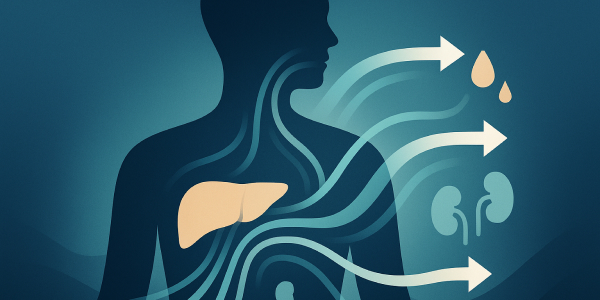
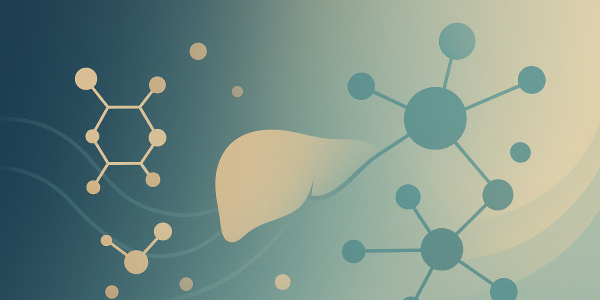
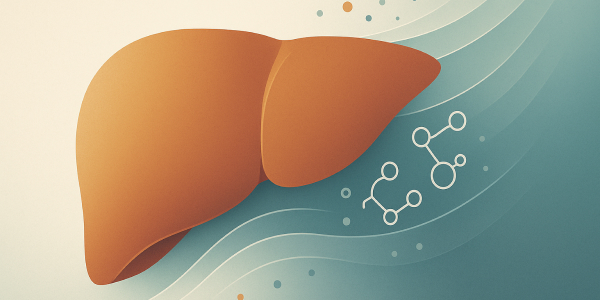
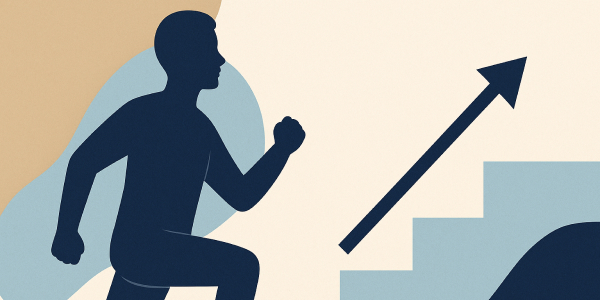
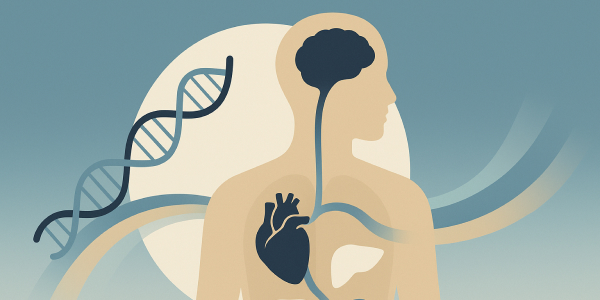
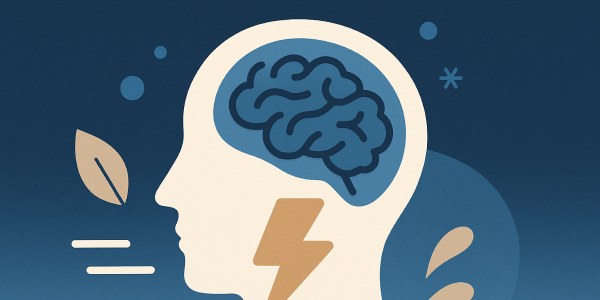

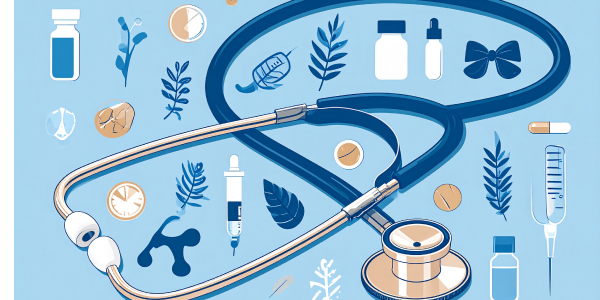
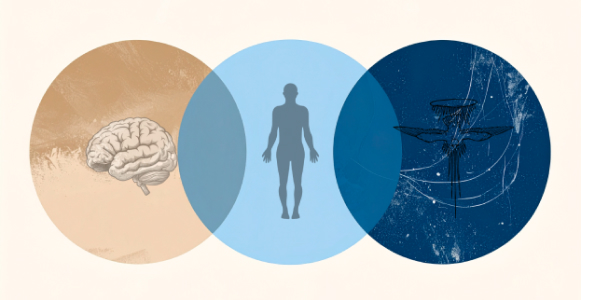
.svg)